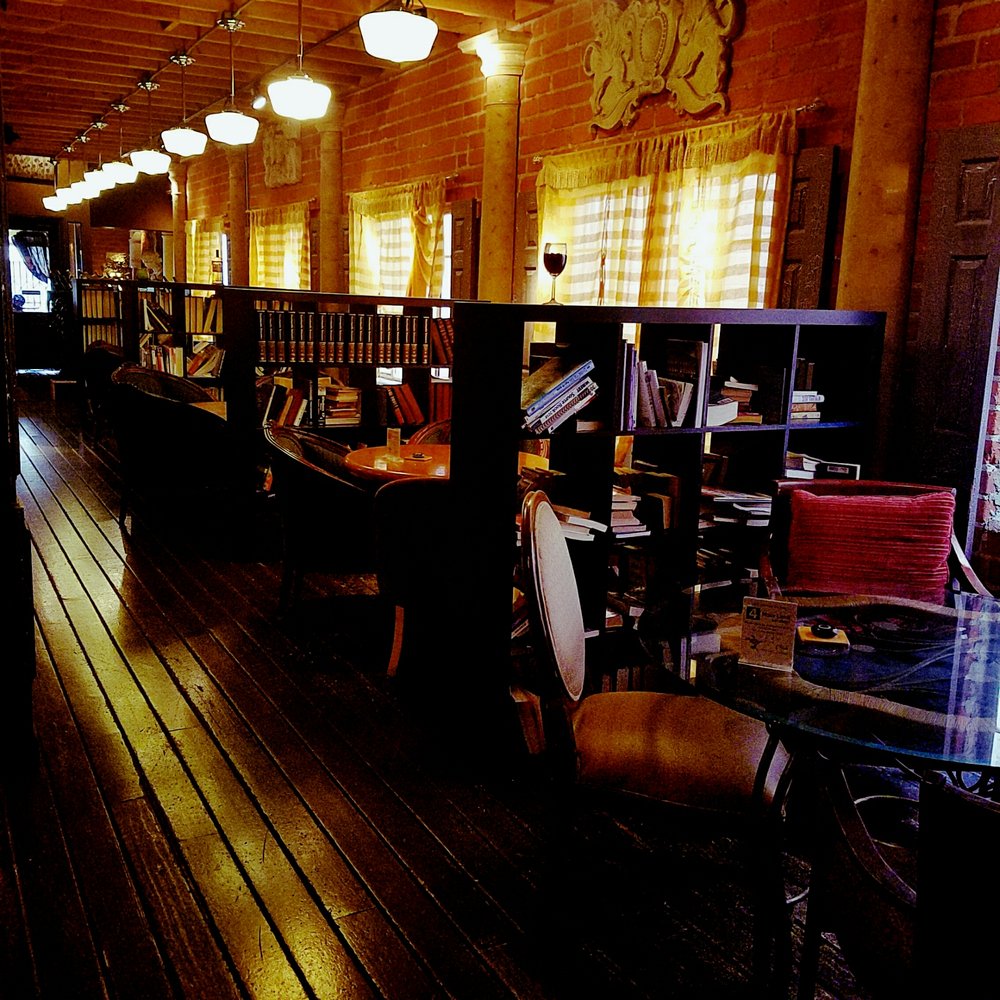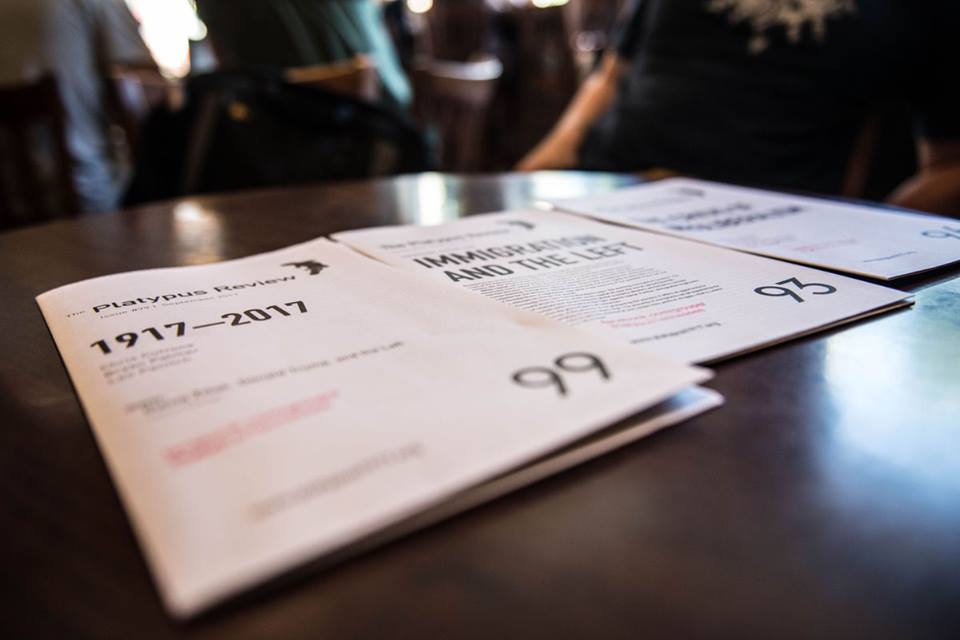Douglas Lain of Zero Squared podcast for Zero Books interviews Chris Cutrone on Realizing Philosophy.
Chris Cutrone is a college educator, writer, and media artist, committed to critical thinking and artistic practice and the politics of social emancipation. He is the former head of the often contrarian Marxist group The Platypus Affiliated Society and in this podcast, we discuss the possibility of realizing philosophy.






Join the Platypus Affiliated Society in Los Angeles all summer long to discuss politics, ideas, and the latest issue of the Platypus Review over drinks and food! All are welcome, new attendants encouraged.
Sundays, 1–3 PM
Café Mak
612 Shatto Place
Los Angeles, CA 90005
Follow us on Facebook and Instagram for news and events in LA!
On this episode, we chat about the HBO miniseries Chernobyl and Cold War nostalgia. Pamela Nogales discusses the ascendance of the Brexit Party in the UK with James Heartfield, a veteran Marxist and Brexit Party candidate. And Rose Freeman and Pam Nogales sit down with members at George Mason University in Fairfax, Virginia to talk about Platypus chapter building & the left in the region.
To learn more about the Platypus Summer Reading Group "30 years of 1989: What was Stalinism in power?" Visit:
platypus1917.org/2019/05/07/summe…linism-in-power/
James
Heartfield spoke at in our Democracy and the Left panel held at
Goldsmiths, University of London, in March 2019, the recording is here:
platypus1917.org/2019/03/28/democ…the-left-london/
Co-hosted by Pamela C. and Rose
On June 30, 2019 at the Left Forum at Long Island University Brooklyn in New York City, the Platypus Affiliated Society hosted a panel titled "The New Deal and American Socialism".
Description:
The New Deal is widely associated with socialism. This association holds true not only within the popular imagination shared across many sections of American society, but also within the historical imagination of the contemporary Left. This panel will consider the New Deal as it appeared to organized political tendencies that struggled for socialism during and after the 1930s. It will ask whether and how the New Deal -- its life, its legacy, its crisis, its memory, and its potential revival -- has advanced the struggle for socialism in America and beyond.
We ask the panelists to consider the following questions:
- How did socialists of various tendencies -- the Communist Party USA, the Socialist Party of America, Trotskyists, and anarchists -- relate to the New Deal during the 1930s?
- How, in their respective views, did the New Deal (considered both as policy and as politics) present obstacles to and/or opportunities for advancing the struggle for socialism?
- The liberal political coalition forged in part through New Deal policies subsequently prosecuted first the anti-fascist Second World War and then the anti-Communist Cold War; it also administered the American-led reconstitution of global capitalism beginning in 1945 that oversaw the creation of the European welfare state. Considering how the New Deal helped usher in a new era of global capitalism: What is the New Deal's relationship to socialism? What is its relationship to capitalism?
Panelists:
Marc Kagan - PhD candidate, CUNY Graduate Center; former officer in Transport Workers Union, Local 100 (New York)
Jason Wright - International Bolshevik Tendency
Jack Devine - PhD candidate, CUNY Graduate Center; Democratic Socialists of America; host of Revolutions Per Minute (WBAI 99.5 FM)
Jack Ross - Author of The Socialist Party of America: A Complete History
On June 30, 2019 at the Left Forum at Long Island University Brooklyn in New York City, the Platypus Affiliated Society hosted a panel titled "Beyond Sect or Movement: What is a Political Center?"
Description:
In his 1973 essay, "Anatomy of the Micro-Sect," Hal Draper gives a definition of a party as opposed to a ‘movement’ or the ‘sects’ that seemed to dominate the Left of his time:
A sect presents itself as the embodiment of the socialist movement, though it is a membership organization whose boundary is set more or less rigidly by the points in its political program rather than by its relation to the social struggle. In contrast, a working-class party is not simply an electoral organization but rather, whether electorally engaged or not, an organization which really is the political arm of decisive sectors of the working class, which politically reflects (or refracts) the working class in motion as it is. A “socialist movement” sums up the mass manifestations of a socialist working class in various fields, not only the political, usually around a mass socialist party.”
Against both the “sect” and merely building a “movement,” Draper argues for the formation of a “political center,” which would be different from a unification of sects, as a first step towards the goal of building a socialist party. How is our present moment similar to or different from that of Draper? What is a socialist party and what are the greatest obstacles today to its realization and how can those obstacles be met? Hal Draper was deeply influenced by his study of Marx and Marxism when he wrote this essay. What can we learn from Hal Draper’s Marxism today?
Panelists:
Spencer A. Leonard - Platypus Affiliated Society
Jim Creegan - ex-SDS, ex-International Bolshevik Tendency, ex-Spartacist League
Michael Hirsch - New Politics Magazine, Portside News Service, DSA

